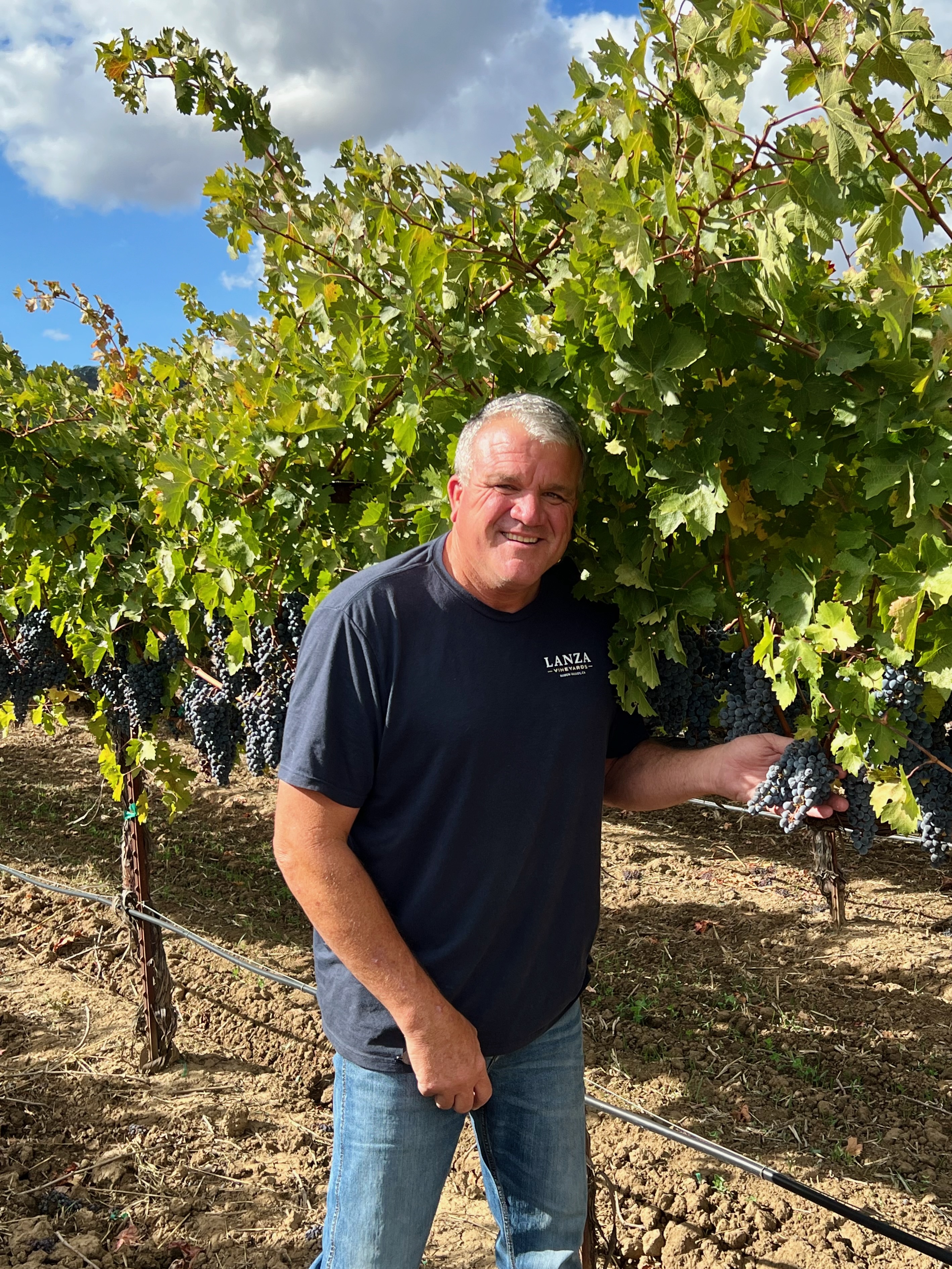In Vino Veritas
January 9, 2024 by John BrownI recently visited California and the vineyard that annually provides the grapes I use to make homemade wine. For the last five years, the quality of those wines has far exceeded anything I’ve ever made before, and I wanted to meet the people that grow the grapes. The Lanza family vineyards are in Solano County just a quick 30- minute drive east of the Napa Valley. More specifically, the Lanza property is located in the Suisun (pronounced Sue-Soon) Valley.
I met with Ron Lanza, the oldest of four brothers, that manage the business, and who have sold their grapes for decades to some of the most prestigious wineries in northern California such as Caymus. In fact, because of the quality of the grapes in the Suisun Valley, Caymus built a tasting facility adjacent to the Lanza vineyards. The Lanza’s also have their own winery, Wooden Valley, and four generations of the family have been making wines there for 90 years. The wines are only available for sale at the tasting room, or through their online tasting clubs. If you’re interested, you can go to their website at: woodenvalley.com. Their wines are uniformly excellent.

Meeting with the Lanza family reminded me of my own immigrant roots and the importance of wine to the culture and tradition of the Italian family. There was always a jug of homemade vino on the family table, especially during family meals at my Grandparents’ home in the North View section of Clarksburg. So, I suppose it’s not surprising that I followed the wine-stained trail blazed by my Grandfather decades before. I know that memories of Grandpa and my uncles making wine left an indelible imprint in my mind. One particular vintage stands out.
My uncles and older cousins gathered in the side yard of Grandpa’s home to make wine. The grapes, mostly reds like zinfandel and petite sirah, came from vineyards in California’s Central Valley, and were then transported by train across the country. I remember helping unload the boxcar full of grapes, packed in 36-pound wooden boxes called lugs. The annual winemaking ritual was a joyous occasion for the whole family. There would be tables next to the old wooden grape crusher that held platters of Italian food and jugs of homemade wine. However, there were certain traditions that had to be observed before the winemaking festivities could begin. First, our parish priest would appear in the yard to bless the new vintage. He would pick up a small vial of holy water, sprinkle and then bless the grapes in the first lug to be crushed. Next, Grandpa would point to the only person among us who was not a member of the family and ask her to come forward. Lucia Carmaletti provided a service that was deemed necessary before winemaking in our family could commence.
Lucia, who was thought to be a gypsy, was hired to perform the ritual “pigiatura” or stomping of the grapes. The woman chosen to do the stomping was traditionally required to be a young maiden, but as my Uncle Frankie said, “the grapes can’t wait for maidens, or they’d never get crushed.” Lucia was neither young nor a maiden, but she was always ready, willing and able to assume the role of Vestal Virgin if called upon, and if she was compensated for her time.
So, Lucia walked up to where Grandpa stood next to a square wooden box filled with grapes. She was dressed in an ankle length, colorful dress, and she wore a purple headscarf, silver necklaces and copper bracelets on each wrist. She smiled at Grandpa, flashing two gold-capped front teeth and said with enthusiasm: “Salvatore, Che muscoli, bell’uomo!”
All the adults there howled in laughter, but Grandpa’s face turned beet red, and he looked sheepishly over at Grandma. She was not smiling. I looked at Uncle Frankie and asked him to translate. My uncle explained that Lucia said, ‘Salvatore, what muscles. You handsome man.’”
Lucia ignored the laughter, removed her leather sandals and stepped into the box. She put her hands on her hips and began dancing the Tarantella while delicately stomping on the grapes with her bare feet. She then invited the kids in the family to join her.
Memories such as these make me appreciate and cherish the culture and traditions associated with wine. They transcend the simple physical act of making it, and they are the foundation for my long and happy love affair with wine.
I am also an ardent disciple of the Roman philosopher, Pliny the Elder, who said: “In Vino Veritas” (In wine there is truth)
John Brown is also a novelist. His latest book, Augie’s World, is a sequel to his debut novel, Augie’s War. Both novels are available in print and audio at Amazon. You can find out more about his novels and wine columns at wordsbyjohnbrown.com

